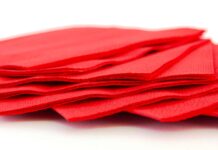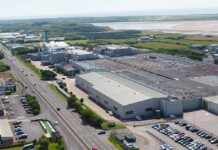Södra Cell has pioneered TCF pulp but with the evolution in the market and in ECF bleaching technology, the company has significantly boosted its growing position in ECF.
Södra’s latest investments have included the new ECF bleaching line at Värö and customers are expected to receive their first ECFtrials by the second half of 2017.
We remain the largest TCF producer in the world by some considerable margin. The total absence of any form of chlorine from the bleaching process is still demanded by significant tissue producers and this remains an important position.
However, the reality is the ECF is favoured in important markets and Södra has responded accordingly.
Södra Cell already offers ECF grades from its other mills, but until now Värö has only produced TCF pulps. The installation of state-of-the-art ECF bleaching equipment is changing all that.
We were pioneers of TCF bleaching in the 1980s when TCF was seen to be a better choice environmentally. But today, according to our lifecycle evaluation there is no discernible environment benefit between TCF and ECF bleaching and the global market for TCF pulp has declined.
Although strong positions for TCF still remain in the German speaking region of Europe, some 95% of our European customers now use ECF pulps and this is basically us adapting to current market conditions.
For those seeking to change grades, it is easier to replace like with like – so it will usually be easier for an ECF customer to switch to another ECF grade.
By offering the choice of both ECF and TCF, we can now make it even easier for customers to make changes to their pulp mix and replace an existing ECF grade with a Södra ECF pulp, should they want to.
ECF: expansion in Asia
Additionally, Södra will be seeking to increase its market share in Asia as a result of the expanded production capacity at Värö. ECF pulps are often the preferred choice for the Asian tissue segment since fluorescence is a subject of debate in the region.
In addition, ECF grades tend not to yellow over time in hot, humid climates, a further consideration when the pulp is being transported long distances or stored for a long time, especially in warmer climates. Some sectors, such as labels, also prefer the slightly higher dimensional stability and tear that ECF grades can impart.
ECF benefits for tissue makers include improved dewatering, less brightness reversion caused by heat and UV light, lower fibre charge, improved dimensional stability and less fluorescence. All this is achieved without affecting tensile strength.
Back on track
As well as trialing the new ECF grades, Värö is continuing its work of optimising the new equipment. We are currently producing pulp of the same standard that we had before the rebuild. But we know the potential we have here and so the fine tuning continues and will probably continue for years to come – we want to show our customers what the new mill can really do. And volume wise we are right on schedule.
This article was written for TWM by Marcus Hellberg, head of marketing and business development, Södra Cell.


































